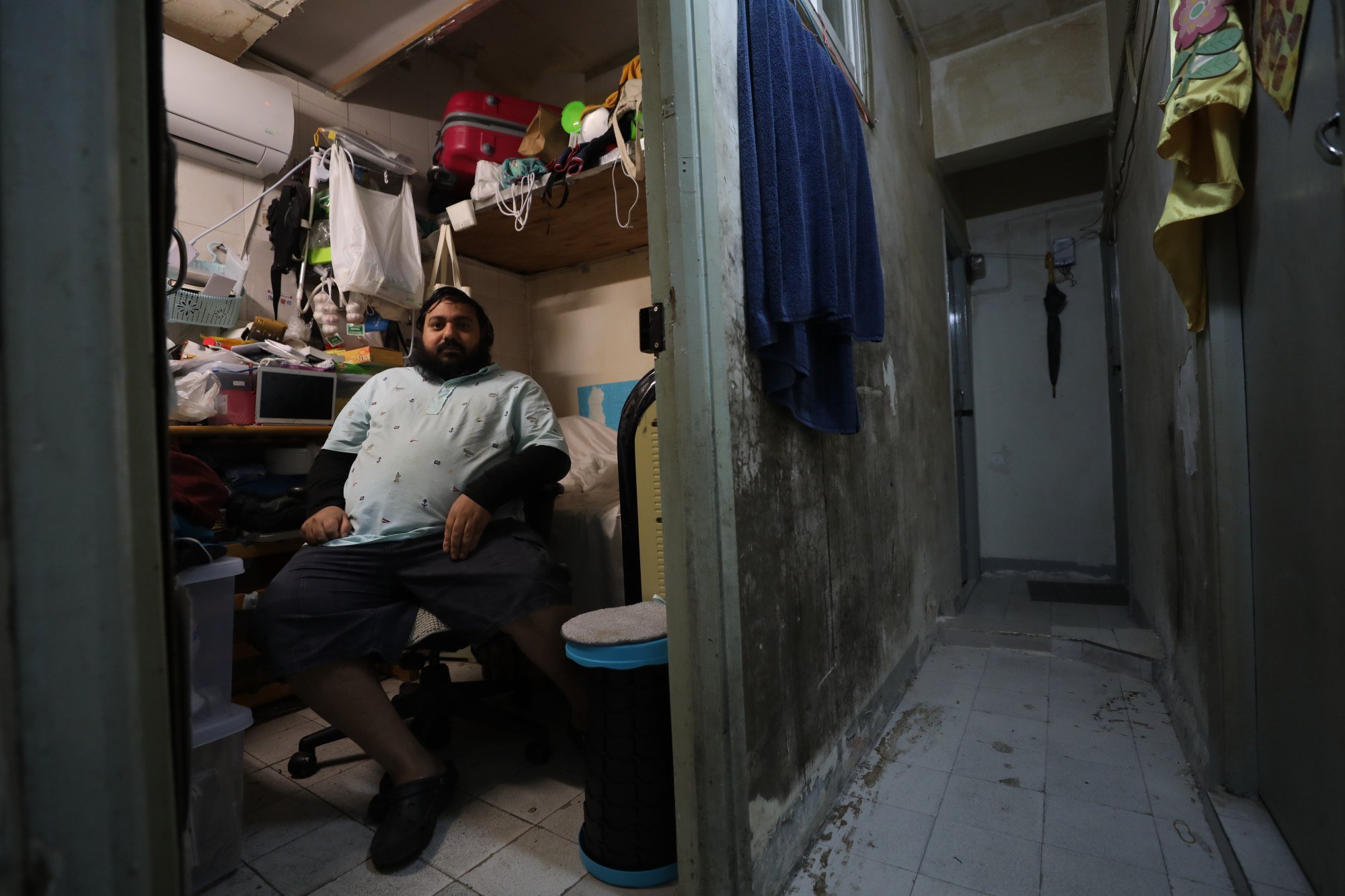
Just in time for Christmas: Egyptian refugee in Hong Kong since 2013 finally gets his ticket to Canada
- Former journalist Poules Zaki gets long-awaited news that he can start life anew in St John, New Brunswick, this month
- Only 320 out of 27,871 asylum seekers have succeeded in getting clearance to be resettled since 2009
“I am so happy. My life has been on hold for 10 years, I cannot wait to see my family again,” he told the Post.
Although his legal bid for refugee status came through in 2018, he had to wait another five years before the United Nations High Commissioner for Refugees (UNHCR) finally told him he could leave Hong Kong.

On November 29, the UN agency informed him he would be resettled in Saint John, New Brunswick, a city about 750km (466 miles) east of Ottawa. He has a brother and a sister in Egypt, and they will be able to join him in Canada too.
“I’m really happy that the first time I can travel in 10 years will be to Canada and I’ll get to see snow at Christmas,” he said.
Zaki is one of only 320 people who have obtained refugee status in Hong Kong since late 2009 – under 1 per cent of the total 27,871 foreigners who tried.
The city does not grant asylum, but offers non-refoulement, which ensures that asylum seekers will not be returned to a country where they might be at risk of persecution or torture.
My cameraman was killed by a sniper while we were broadcasting live
Those who succeed in persuading the Hong Kong courts that they deserve refugee status are allowed to remain until they are resettled to a third country, a process that can take many more years.
“We’ve got clients who have been waiting for resettlement for 20 years,” said Siew Mei Cheung-Ang, executive director of the Hong Kong NGO Christian Action – Centre for Refugees.
Jeffrey Andrews, centre manager of the NGO, said that in November, one of his former clients died while waiting to be moved to a third country, something he said was not uncommon.
He said resettlement could be delayed for a variety of reasons, such as international refugee crises in other parts of the world.
“Hong Kong is not a priority, especially given the war in Ukraine and other conflicts,” he said.

A former television journalist in Cairo, Zaki reported on the front line of the Arab spring and bloody conflicts between Muslims and Christians in the country between 2010 and 2012. He interviewed victims of military and extremist brutality and gave them a voice.
A Christian himself, he gave interviews to Al-Jazeera, the BBC and local Muslim television stations and criticised the killing of civilians and religiously motivated attacks against Christians and Muslims.
His media appearances made him a target, he said.
“My cameraman was killed by a sniper while we were broadcasting live,” he recalled. “After that, I became the cameraman and the reporter.”
Once, he was beaten so severely by a group of soldiers that he spent a week in intensive care. It took him more than a month to recover, he said.
After that, he cut off all contact with his family and deleted their phone numbers in case he was captured.
He fled Egypt in early 2013 for Hong Kong, but his non-refoulement claim was rejected by the Immigration Department in 2018. He was crushed by the failure and it affected his mental and physical health, he said.
But he appealed the same year and succeeded. He was referred to the UNHCR for resettlement to Canada.
Andrews, a social worker who has known Zaki since the Egyptian arrived in Hong Kong, said he became worried for him during his long years of waiting.
“I’ve seen his health gradually get worse over the 10 years he’s been with us,” he said. “We pushed the UNHCR to treat him as a medical case – which they did.”
During his time in Hong Kong, Zaki was regularly invited to speak at schools, universities and corporate events about the plight of asylum seekers.
He also met former chief executives Leung Chun-ying and Carrie Lam Cheng Yuet-ngor.
Like all asylum seekers and refugees, he lived on about HK$3,200 (US$500) a month in subsidies from the government.
HK$1,800 was paid directly to the landlord of his subdivided unit for rent and utilities and HK$1,200 was given in the form of food vouchers. An allowance of HK$200 was given for transport.
Zaki lived alone in a subdivided unit in Cheung Sha Wan, Kowloon, and regularly turned to charities for donations of necessities such as soap, shampoo and cooking supplies.
After being granted refugee status in 2018, he was allowed to apply for a work permit, but his declining physical and mental health made finding a job hard.
He passed his time reading, visiting refugees and charities and giving talks.
Zaki said he had never heard of St John, New Brunswick, but since being told he would be going to the town of about 70,000 people, he found a church where he could volunteer and planned to start a course related to the theology of the Coptic Orthodox Church.
Looking back at his years in Hong Kong, he said he had seen attitudes towards refugees improve, but doubted that the city could fully embrace them.
“I have seen a change in some Hong Kong people,” he said. “They are more welcoming to refugees now than when I first arrived.”

